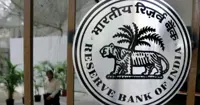Airlines find India’s non-format passenger data system difficult to implement
13 Jun 2008
New Delhi: A move by the Indian government to implement a new passenger data system by 30 June is causing a certain amount of resentment in the international airline industry. According to global carriers the system being sought to be put into place by the Indian government is incompatible with industry norms, as certified by the United Nations. Briefly, it seeks too much information, and that too in a non-standard format making it difficult for global carriers to implement.
India's non-standard system has now brought the International Air Transport Association (IATA) into play with the international body expressing its concerns India's civil aviation minister. In its communique, the IATA has said that India needs to be in harmony with the global standard that international airlines are already meeting.
''In the case of India, we're being asked for all kinds of information which is inconsistent with what other countries are requiring,'' IATA spokesman Anthony Concil said. ''So our message to governments, India included, is, if we're going to be serious about building an effective advanced passenger information system, then it's time for governments to start talking to each other to harmonize their requirements.''
Also, the global passenger information standard uses an encrypted format known as UN/Edifact, which allows data to be easily decoded by immigration authorities for arriving flights. In India's case the problem is further compounded as the passenger data is being sought in a different data format, which means that carriers will need to induct new equipment just for one country.
India had wanted to implement the new system on 1 April, but extended the deadline by 90 days to allow airlines time to prepare.
Airlines are not disputing India's right to seek information on all incoming passengers. Ever since the 9/11 attacks on the United States automated screening of passengers is routine. The transmission of passenger data before takeoff is now mandatory in a number of countries, including the United States, Canada, South Africa and Australia.
Meanwhile, Japan Airlines has denied media reports that it is considering suspending service between Tokyo and New Delhi because of these requirements. The airline has, however, clarified that it has ''strongly requested'' India to standardise its system in line with international norms.
Indian flag carrier, Air India, has said it is ready to comply with the new government regulations for passengers that it will fly into the country.

.webp)






.webp)






















